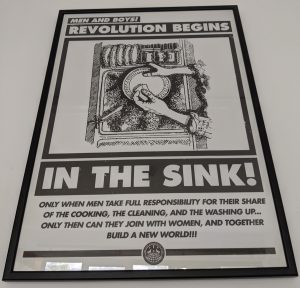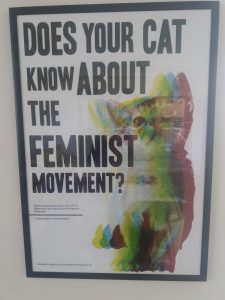Enhancing the Student Experience in Sociology
Prof Nicole Westmarland, former Head of the Department of Sociology talks about changes they brought in to help enhance the student experience within the Dept of Sociology.
Following a short presentation to Senate, I was grateful to be invited by DCAD to share some of the things that we have been doing in Durham University’s Department of Sociology over the last few years to try to make the Department the very best place it can be for all staff and students.
If we rewind a few years, there was definitely space for improvement. Staff morale was low, and this was influencing some of our metrics such as the NSS. While the NSS obviously has its limitations as a tool for measuring the quality of a degree programme, it still came as a big shock to many of us that some of our students weren’t as happy about our programmes as we wanted them to be. Many of us thought that we were doing a good job with our students in spite of problems at the staffing level.
Big changes were needed, and big changes have been happening. We are now in a really strong position again with both of our undergraduate programmes in the top ten – and given we have many more exciting ideas for the future this is a great position to be in.
But it’s not the big ideas and the big changes I want to talk about here (changing our academic advisor system, largescale curriculum development etc.) – it’s the smaller, everyday things. The things that some might pass off as being not as important as ‘strategic goals’ type language, as optional extras, as more ‘fluffy’. But for me, while I was Head of Department, I saw some real shifts take place because of these smaller changes. Some might sound a bit irrelevant in isolation, but it was definitely a case of the whole being greater than the sum of their parts.
Some of the things that we did – certainly not me alone by a long way – this was a big team effort – were:
- Reinforcing messages to students that were particularly important to us personally with a personal email from the HoD – for example, as well as an email with sources of support for students who were feeling stressed or anxious around dissertation hand-in time, a personal message of support was sent urging students to phone, email, turn up at the Department if they were feeling like they were not able to access these resources.

Responding to student concerns brought up at staff student consultative committees within hours or days where possible – for example, opening up a seminar room for quiet study in the run up to exams and changing the seating in the common room.

- Making the physical environment more exciting and more ‘us’ – we added new posters, put up inspiring pictures of our alumni in the student common room and listed what they had achieved since leaving our programmes.

- We ordered new ‘stash’ – t-shirts with our programme names on them – but we also added quotes on the back that meant something to us as a Department.
- Sociology – ‘Sociology: A science that makes trouble’ (Bourdieu)
- Criminology – ‘Injustice anywhere is a threat to justice everywhere’ (Martin Luther King Jr.)
- Social Work – ‘If the structure does not permit dialogue the structure must be changed’ (Freire)
- HoD meetings with individual or groups of students to mark particular achievements (always with coffee and cake of course!) – such as being made President of the Social Sciences Society or being awarded VC scholarships.
- I know this will be unpopular with some given the administrative workload of a HoD, but I also found being a module convenor and continuing to run undergraduate seminars a really important way of keeping my feet on the ground, knowing what pressures the staff team were facing at different times of year around marking etc. (as I was facing them too!) and, crucially, remembering that our students have so much to offer us as academics as well as the more usual vice versa.
- Wherever it was possible to shift power we did so even when it was small-scale. This wasn’t just amongst staff but students as well. For example, when we had our Sociology in Action week and went to Redhills (‘The Pitmans Parliament’) to discuss ‘Fake News’ we asked the students to work in pairs to chair the presentations and the question and answer sessions. This put them in a different position of power to usual as it was them telling us when to talk and when to stop talking!
These are just a flavour of some of the things that we did that I’m convinced made a difference. I was hugely supported by my academic colleagues and even more so by my PSS colleagues. I was asked to write this blog to highlight some of the things we did because sometimes change can feel big and overwhelming. I wanted to highlight that sometimes so called ‘soft’ and immeasurable shifts and subtle changes can be part of an important shift in culture that can lead to significant improvements in ‘hard’ and measurable outcomes’ such as league tables and NSS results.
Nicole Westmarland, Professor of Criminology in the Department of Sociology and former Head of Department
